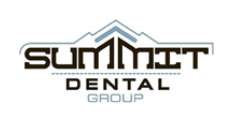

15
Sep
The Top Signs of Tooth Decay & When to Visit a Dentist in Boise

If you are like most people, you probably don’t think about tooth decay until it’s too late. By then, the damage has been done and you are left with a costly and time-consuming dental procedure. That’s why Summit Dental Group would like to discuss the top signs of tooth decay and when to visit a dentist in Boise so that you can catch it early and prevent any serious damage.
What is Tooth Decay?
Tooth decay is the process of demineralization, or the loss of minerals, in your teeth. This can happen when plaque buildup on your teeth allows acid to eat away at your tooth enamel. The most common sign of tooth decay is a cavity. Cavities are small holes that form in your teeth when the enamel has been damaged. Below, we’ll explain other common signs of tooth decay.
General Tooth Sensitivity
One of the first signs of tooth decay is general tooth sensitivity. This means that your teeth are sensitive to hot, cold, or sweet foods and drinks. If you notice that your teeth are more sensitive than usual, it’s important to see a dentist in Boise right away.
Tooth sensitivity can be caused by a number of factors, including gum disease, cracked fillings, and exposed roots. However, it can also be one of the early signs of tooth decay.
Visible Holes or Pits in Teeth
Another common sign of tooth decay is visible holes or pits in your teeth. These holes are usually small at first but they can quickly become larger as the decay progresses. If you notice any holes or pits in your teeth, it’s important to see a dentist as soon as possible. They will be able to determine the best course of treatment based on the severity of the decay.
Dark Spots on Teeth
Another common sign of tooth decay is dark spots on your teeth. These spots are usually brown or black and they can be difficult to remove with brushing alone. If you notice any dark spots on your teeth, it’s important to see a dentist in Boise right away. They will be able to determine the cause of the spots and recommend the best course of treatment.
Bad Breath or Halitosis
Bad breath, also known as halitosis, is another common sign of tooth decay. If you notice that your breath is consistently bad, it’s important to see a dentist. There are a number of different causes of bad breath, but one of the most common is gum disease. Gum disease is an infection of the gums that can cause tooth loss if it’s not treated early.
Swelling or Redness in the Mouth
Swelling or redness in the mouth is another common sign of tooth decay. If you notice any swelling or redness around your teeth or gums, it’s important to see a dentist in Boise right away. There are a number of different causes of swelling and redness in the mouth, but one of the most common is gingivitis. Gingivitis is an inflammation of the gums that can lead to more serious problems if it’s not treated early.
Pain When Applying Teeth Pressure
Pain when applying teeth pressure is another common sign of tooth decay. If you notice any pain when you bite down or chew, it’s important to see a dentist right away. There are a number of different causes of this type of pain, but one of the most common is an abscessed tooth. An abscessed tooth is a tooth that has become infected and can be very painful if not treated early.
What are the Treatments for Tooth Decay?
The treatment for tooth decay will depend on the severity of the decay. In some cases, a simple filling will be all that’s needed to repair the damage. In other cases, more serious procedures, such as a root canal or dental crown, may be necessary. If the decay is left untreated, it can lead to tooth loss.
How to Prevent Tooth Decay
The best way to prevent tooth decay is to practice good oral hygiene. This means brushing your teeth twice a day, flossing daily, and using mouthwash. It’s also important to see a dentist in Boise regularly for checkups and cleanings. They will be able to spot any problems early and recommend the best course of treatment.
Schedule a Dental Appointment with Summit Dental
If you’re concerned about tooth decay, the best thing to do is schedule a dental appointment with Summit Dental. We can help you determine if you have any signs of tooth decay and recommend the best course of treatment. We know how important your smile is to you and we’ll work hard to help you keep it healthy. Contact us today by filling out our online form or give us a call at (208) 314-2275 to schedule an appointment.

